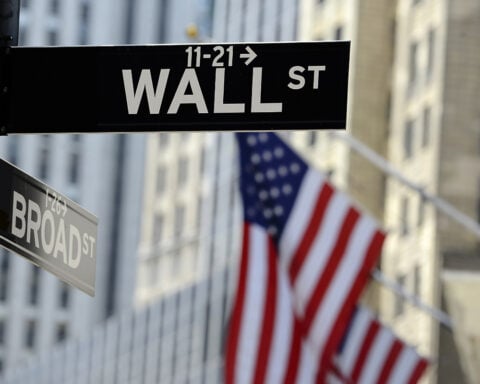As Wall Street gears up for a critical week filled with economic reports and a pivotal Federal Reserve meeting, investors faced a day of mixed fortunes on the stock market. The S&P 500 slightly dipped by 0.1% despite hovering near last week’s record highs, reflecting a cautious stance among traders. The Dow Jones Industrial Average saw a marginal increase of 7 points, while the tech-heavy Nasdaq composite fell by 0.2%.
One of the notable declines was seen in Huntington Bancshares, which plummeted by 5.9% after the bank revised its profit forecasts downward, sparking a broader sell-off among financial institutions. Citizens Financial Group, Regions Financial, and KeyCorp were among other banks that faced declines, dropping by 3.1%, 3%, and 2.7% respectively.
Conversely, the energy sector witnessed some positive momentum, particularly in the oil drilling industry. Diamond Offshore Drilling experienced a significant surge, jumping 10.4% after Noble announced its acquisition in a deal valued at approximately $1.6 billion. Noble’s stocks also climbed by 4.7%, indicating investor optimism about the merger’s potential benefits.
In the technology sector, Apple saw its shares decline by 0.9% as it prepared to unveil new artificial intelligence technology at an upcoming conference. This move comes at a time when AI technology has been a significant driver of stock market records, despite ongoing concerns over high interest rates and a potential economic slowdown.
Nvidia, a giant in the AI and tech industry, remains a powerhouse with a market valuation nearing $3 trillion, even after a slight decrease of 1.7% in its stock price. This follows a strategic 10-for-one stock split aimed at making its shares more accessible to a broader range of investors, reflecting its skyrocketing value amid the AI boom.
The economic data contributing to the market’s mixed signals include a robust jobs report that was offset by weaker performances in manufacturing and uneven consumer spending. The disparity in consumer spending is particularly stark, with lower-income households struggling under persistent inflation, while those with higher incomes continue to spend robustly.
Looking ahead, all eyes are on the Federal Reserve, which is expected to hold its main interest rate steady in its upcoming announcement. However, the financial community is keenly awaiting the Fed’s future projections, particularly after previous indications suggested potential rate cuts in 2024. Current expectations have been tempered, with predictions now leaning towards fewer rate reductions.
In the bond market, yields were inconsistent, with the 10-year Treasury yield seeing a slight uptick to 4.45% from 4.43%, and the two-year yield, closely tied to Fed rate expectations, edging down to 4.87% from 4.89%.
Global markets also felt the ripple effects of political and economic developments. In Europe, France’s CAC 40 index took a hit, tumbling by 1.9% following President Emmanuel Macron’s decision to dissolve the National Assembly in response to unexpected election results. Other European markets experienced less severe impacts, whereas markets in Asia ended on a mixed note. Japan’s Nikkei 225 index climbed by 0.9% after reports indicated a less severe economic contraction than initially thought, while South Korea’s Kospi index fell by 0.8%.
As the week progresses, additional reports on consumer and wholesale inflation levels are due, which could further influence the Fed’s decisions and investor strategies. With so many critical economic indicators on the horizon, Wall Street remains braced for a potentially volatile week.







